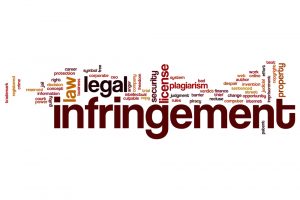Plagiarism in Self-Publishing: What Writers Should Know About Copyright Laws and Infringement
 There are many misconceptions in self-publishing, and one of them is that plagiarism in self-publishing in a major risk. Like any misconception, with knowledge of and experience with the topic at hand, it is proven wrong. As more and more people turn to self-publishing to make their dreams become reality, this misgiving will fall aside.
There are many misconceptions in self-publishing, and one of them is that plagiarism in self-publishing in a major risk. Like any misconception, with knowledge of and experience with the topic at hand, it is proven wrong. As more and more people turn to self-publishing to make their dreams become reality, this misgiving will fall aside.
Because self-publishing allows for so much freedom on the part of the writer, some people believe it becomes all too easy for that author to plagiarize other work. Basically, what’s keeping them from “publishing” a book that’s already been written or published? To understand why this just isn’t realistic, you must first understand copyright laws and how they’re connected to self-publishing.
How are plagiarism and copyright related?
Copyright put simply is this: if you create it, you own it, and the copyright protects that ownership. Copyright is different from patents, however. Copyrights protect works of authorship; patents products. Ideas or facts cannot be copyrighted. Therefore, if you have the idea to write about a vampire living in the Wild West, but someone writes a book about it before you do, you cannot claim copyright of that idea.
Copyright gets tricky in traditional publishing houses or vanity presses, where the publisher owns the copyright, and therefore the book. In self-publishing, however, the author is the publisher, and therefore retains all rights to their work.
Plagiarism, then, is the act of stealing a copyrighted work. Plagiarism is different from copyright infringement. What falls under copyright infringement itself is very broad. Anything that encroaches upon the copyright holder’s rights is copyright infringement. Plagiarism is taking another’s copyrighted work and presenting it as your own.
Some examples of plagiarism or copyright infringement are this: copyright infringement would be someone performing a play or a dramatic reading of a work without expressed permission from the copyright holder; plagiarism would be saying that stolen work is their own.
When is a work protected by copyright?
According to the U.S. Copyright website, a work is copyrighted from “the moment it is created and fixed in a tangible form that it is perceptible either directly or with the aid of a machine or device.” Actually registering the copyright is optional. People who chose to register do so in order to have their copyright made public knowledge.
Not everything that’s been copyrighted before is still. According to Stanford University’s copyright and fair use page, the following rules can reveal if a copyright is still in effect or has expired:
- If the work was published in the U.S. before 1923, it’s in the public domain.
- Works published between 1922-1978 are protected for 95 years, and then they become a part of the public domain.
- Anything after 1978 lasts for the duration of the author’s life plus seventy years.
- If the work was published between 1923 and 1966, however, you should check with the U.S. Copyright Office, because the author could have failed to renew the copyright on the work.
Therefore, following the rules above, a work by an author like Shakespeare is a part of the public domain, which is why it’s so often performed.
Should writers be worried about plagiarism in self-publishing?
Yes and no. While self-publishing allows for more freedom than traditional publishing, if someone plagiarizes a work, it will be found out, regardless. Services like Amazon publishing, where anyone can upload anything and call it “theirs”, has worried authors that their work is liable to be plagiarized, but that’s exactly why copyrights exist: to protect a work. Someone could, by all means, attempt this, but the copyright law would protect the original author.
Fear surrounding plagiarism in self-publishing does nothing but hold self-publishing back. Despite being an established, diverse, and thriving industry, self-publishing is still shrouded in misconceptions. Hopefully, however, these misconceptions will be proven wrong with time and experience.
